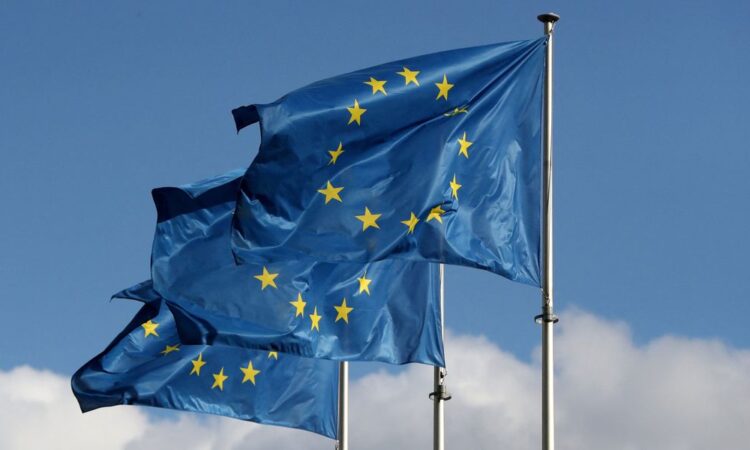
The European Union has become increasingly divided over its lavish energy subsidies as France and Germany blast the bloc ahead of its deadline.
Paris and Berlin have taken exception to the European Commission’s measures which were imposed following Vladimir Putin’s invasion of Ukraine.
The measures enabled national capitals to subsidise the energy sector to protect the industry from price spikes.
The EU’s executive is now pressing member states to confirm the relaxation of stand handouts by December 31.

Climate Minister Robert Habeck attends a press conference after a closed cabinet meeting at Schloss Meseberg, near Gransee, Germany
REUTERS
France and Germany, the two largest economies in the Brussels bloc, are not keen on killing off subsidies entirely.
The pair fear such a decision would risk losing industrial competitiveness, Politico has claimed.
It could also encourage inventors to focus projects in the United States and China.
The December 31 deadline is also seen as a cliff-edge for the sector as state support provided a steady supply of gasoline, natural gas and electricity.
Continuing to provide such levels of intervention could be considered illegal state aid as it would distort the single market with larger nations supporting their corporate class to a more significant extent than their smaller allies.
A survey seen by Politico confirmed the Commission asked: “The economic outlook provides an indication that the serious disturbance of the economy is abating — and with it the need for the existing exceptional crisis response in the field of state aid control.”
Brussels added the survey would be used to “seek confirmation that the specific energy measures in Sections 2.4 and 2.7 [of the Temporary Crisis and Transition Framework] are no longer needed in their current form beyond 31 December 2023.”
German Economy Minister Robert Habeck said on Wednesday: “Of course, there are talks with the EU Commission.”
He added: “The price of electricity for industry has also been discussed time and again, as has a problem that is obvious, namely that industry in Europe has to produce competitively.

Electrical power pylons with high-voltage power lines are seen next to wind turbines near Weselitz, Germany
REUTERS
“So, of course, there is an ongoing channel of conversation there.”
The French energy ministry also said: “This regime for relaxing state aid has been particularly useful and has been used over its whole duration, within the context of the energy crisis.
“The consultation with the European Commission on the possible extension of the state aid regime is open until September 15 and our answer is being prepared by the French authorities.”
Member states are expected to respond to the Commission’s survey by September 15.
A temporary crisis framework set up by Brussels will enable member states to fund longer-term measures to boost renewable energy, decarbonisation of industrial processes and transition to net zero until the end of 2025.






